Hi there, fellow dog lover! I’m Dr. Candy, your friendly holistic veterinarian. Today, let’s talk about a topic that’s often overlooked but incredibly important for our furry friends – their dental health. Specifically, we’re focusing on American Hairless Terrier dental health. Just like us, our canine companions can suffer from a variety of dental issues, and these problems can lead to more serious health conditions if left untreated.
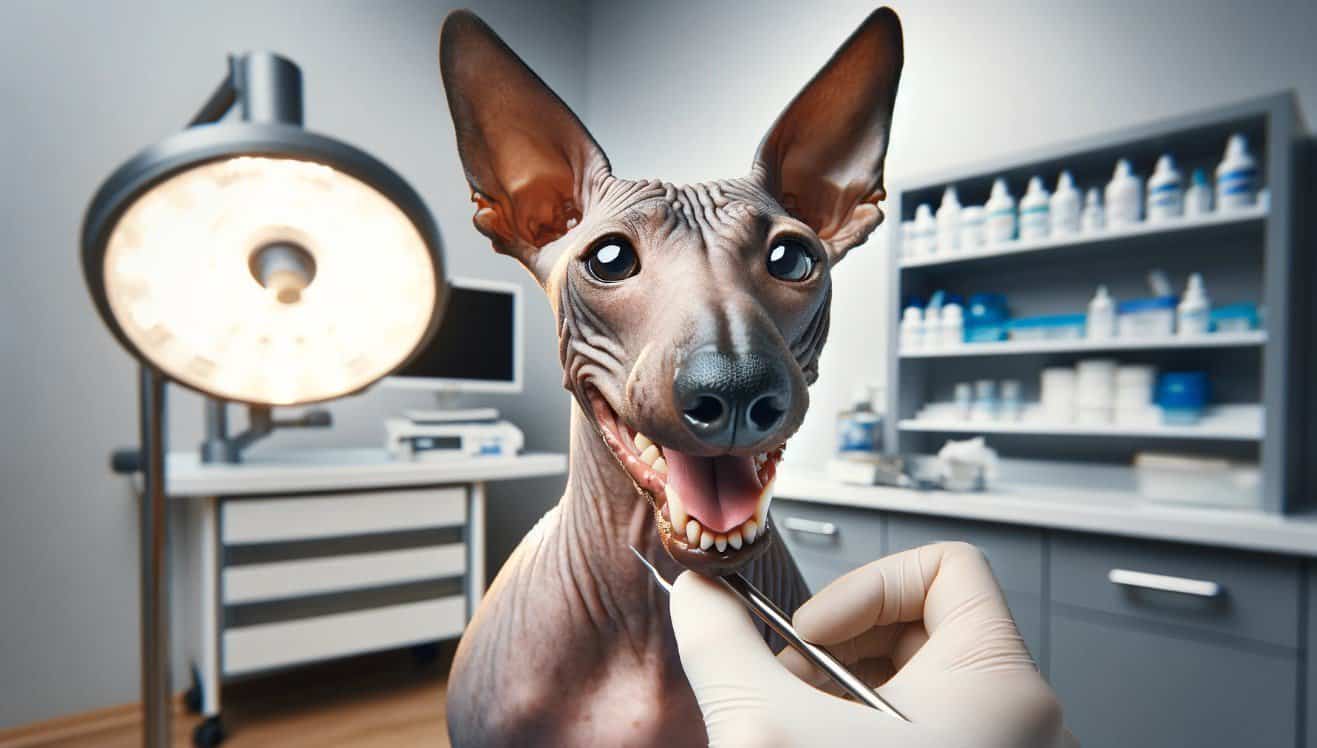
Our American Hairless Terriers, with their unique hairless coats and energetic personalities, are no exception. They can be prone to certain dental health issues that need our attention. But don’t worry, I’m here to guide you through the signs of dental disease in these adorable pups, common dental health issues they face, and both conventional and holistic treatments to keep their teeth and gums healthy. I’ll also share my recommended dental chews and products specifically suited for American Hairless Terriers. So, let’s jump right in and learn how to keep that doggy breath fresh and those canine smiles bright!
Signs of Dental Disease in American Hairless Terrier
As a holistic veterinarian, I often encounter pet parents who are blissfully unaware of the potential dental health issues their American Hairless Terriers might be facing. So, let’s shine a spotlight on the telltale signs of dental disease in these charming dogs. Understanding these symptoms is the first step in maintaining your pet’s American Hairless Terrier Dental Health.
Firstly, bad breath is not just an unpleasant occurrence—it’s a red flag. Persistent bad breath in your American Hairless Terrier may indicate dental disease. Remember, a healthy dog’s breath doesn’t have a foul odor. If your pet’s breath smells sour or rotten, it’s time to consult your vet.
Another common sign is difficulty eating or a sudden loss of appetite. If your dog suddenly shows a lack of interest in its favorite treats or struggles to chew, it might be suffering from dental pain. Other signs to watch out for include excessive drooling, discolored or loose teeth, and inflamed gums.
Behavioral changes can also hint at dental problems. Is your usually playful pet suddenly lethargic or irritable? It might be experiencing discomfort due to dental disease. Also, if your American Hairless Terrier frequently paws at its mouth or face, it could indicate oral pain.
- Bad breath – Could indicate dental disease
- Difficulty eating or loss of appetite – Might be due to dental pain
- Excessive drooling, discolored or loose teeth, and inflamed gums – Signs of potential dental issues
- Behavioral changes – Lethargy or irritability could signal discomfort due to dental disease
- Frequent pawing at the mouth or face – Could indicate oral pain
Early detection of these symptoms can make a significant difference in your pet’s dental health and overall well-being. If you notice any of these signs, don’t hesitate to seek professional help. Remember, your American Hairless Terrier’s dental health is just as important as its physical health. Keep an eye out for these signs and ensure your pet’s mouth remains as healthy as its charming, hairless coat!

Common Dental Health Issues In American Hairless Terrier
As a veterinarian, I’ve seen a variety of dental health issues in American Hairless Terriers. This breed is prone to certain oral problems due to their unique genetic makeup and physical characteristics. Understanding these common issues can help you maintain your pet’s American Hairless Terrier dental health.
- Periodontal Disease: This is the most common dental issue I see in American Hairless Terriers. It starts with plaque buildup which, if not removed, hardens into tartar. This can lead to inflammation and infection of the gums, causing discomfort and bad breath.
- Dental Caries: Also known as cavities, these occur when bacteria in the mouth break down sugars in food, producing acid that erodes the tooth enamel. This can result in tooth decay and pain.
- Broken Teeth: American Hairless Terriers love to chew, and sometimes their enthusiasm can lead to broken teeth. This can expose the sensitive inner part of the tooth, leading to pain and infection.
Keeping an eye out for these common issues can help ensure your American Hairless Terrier dental health remains in top shape. Regular check-ups with your vet are essential, as many dental problems can be spotted and treated early before they become more serious.
Conventional Dental Health Treatments
When it comes to maintaining your American Hairless Terrier dental health, there are a few conventional treatments you can consider.
Anesthetic Dental Cleanings
One of the most common treatments is anesthetic dental cleanings. This involves your dog being put under anesthesia, and a professional veterinarian performing a thorough cleaning of your dog’s teeth. This method is highly effective at removing plaque and tartar, reducing the risk of further dental issues. However, it’s important to note that this procedure is not without its risks, especially if your American Hairless Terrier has pre-existing health conditions.
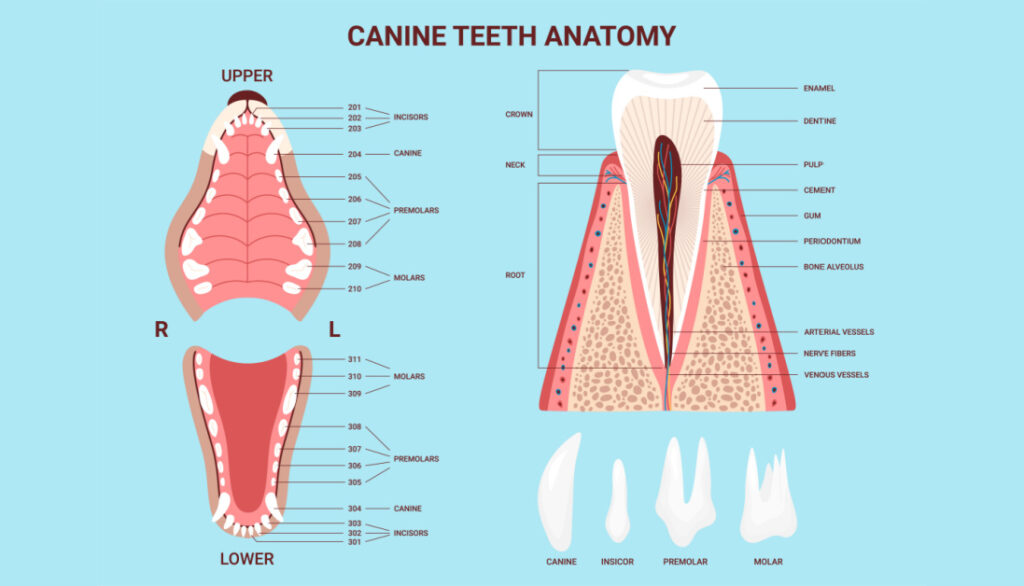
Potential Individual Health Obstacles
Before opting for anesthetic dental cleanings, it’s crucial to consider your dog’s individual health. For instance, if your dog has heart problems, putting them under anesthesia could pose a significant risk. Similarly, some dogs may have drug sensitivities that could lead to complications during the procedure.
Seizures are another factor to consider. If your dog has a history of seizures, anesthesia could potentially trigger an episode. Additionally, older dogs, especially those of extreme age, may not be suitable candidates for anesthetic dental cleanings due to the added risks associated with anesthesia in older pets.
In summary, while anesthetic dental cleanings can be highly effective for maintaining your American Hairless Terrier’s dental health, it’s crucial to weigh the potential risks and consult with your veterinarian to ensure it’s the best course of action for your furry friend.
Remember, every dog is unique, and what works for one might not work for another. When it comes to your American Hairless Terrier dental health, it’s always best to take a personalized approach, taking into consideration their individual health and needs.
When it comes to American Hairless Terrier dental health, a holistic approach can be quite beneficial. This involves taking into account your dog’s overall health and lifestyle, not just focusing on their teeth. As a pet parent, you can make a significant impact on your pet’s oral health by considering two key factors: their diet and the use of oral health-specific probiotics.
Diet: Low Carbs, Avoid Added Sugars, Enzymes In Fresh Food
Just like in humans, a dog’s diet can significantly affect their dental health. For American Hairless Terriers, a diet low in carbohydrates can help prevent the buildup of plaque and tartar on their teeth. Foods high in carbs can stick to your pet’s teeth, providing a breeding ground for harmful bacteria.
Similarly, added sugars can be detrimental to your dog’s oral health. Sugars provide food for bacteria, encouraging their growth and leading to dental issues such as tooth decay and gum disease. Therefore, try to avoid giving your dog foods with added sugars.
Lastly, incorporating fresh foods into your dog’s diet can be beneficial. Fresh foods often contain enzymes that can help break down plaque and tartar, promoting better oral health. Foods like raw carrots, apples, and celery can act as natural toothbrushes, helping to clean your dog’s teeth as they chew.
Oral Health Specific Probiotics
Probiotics are beneficial bacteria that can help improve your dog’s overall health, including their oral health. Certain probiotics are specifically designed to promote oral health by balancing the bacteria in your dog’s mouth, preventing the overgrowth of harmful bacteria that can lead to dental issues.
I highly recommend Probiora for Dogs, an oral health-targeted probiotic. This product is designed to support your dog’s oral health, helping to maintain a balanced oral microbiome. It can help reduce plaque and tartar buildup, freshen breath, and promote healthier teeth and gums.
Remember, every dog is unique, and what works for one may not work for another. It’s always best to consult with your vet before making any significant changes to your dog’s diet or introducing new supplements. With the right approach, you can help ensure your American Hairless Terrier’s dental health is in top shape, contributing to their overall well-being and happiness.

Recommended Dental Chews & Products For American Hairless Terrier
As a pet parent, you might have been led to believe that commercially promoted dental chews are the magic solution to your American Hairless Terrier’s dental woes. Unfortunately, this is far from the truth. Many of these chews are packed with unhealthy additives and artificial ingredients that can cause more harm than good. They are often high in calories and can even lead to digestive issues. Moreover, they are not as effective in cleaning your dog’s teeth as they claim to be.
Another commonly recommended product is drinking water additives. While they might seem like a convenient solution, they can actually harm the beneficial bacteria in your dog’s gut. This can negatively impact their overall health and well-being.
So, what should you use instead? Let’s dive into some healthier, more effective alternatives.
Dr. Candy’s Recommended Dental Chews & Products
When it comes to maintaining your American Hairless Terrier’s dental health, natural is always best. Opt for chews made from single source natural proteins. These are not only healthier but also more effective in cleaning your dog’s teeth.
Tendons
Tendons are a fantastic natural chew for your American Hairless Terrier. They are tough and fibrous, which helps to scrape off plaque and tartar from your dog’s teeth. Plus, they are a good source of protein and collagen, promoting good joint health.
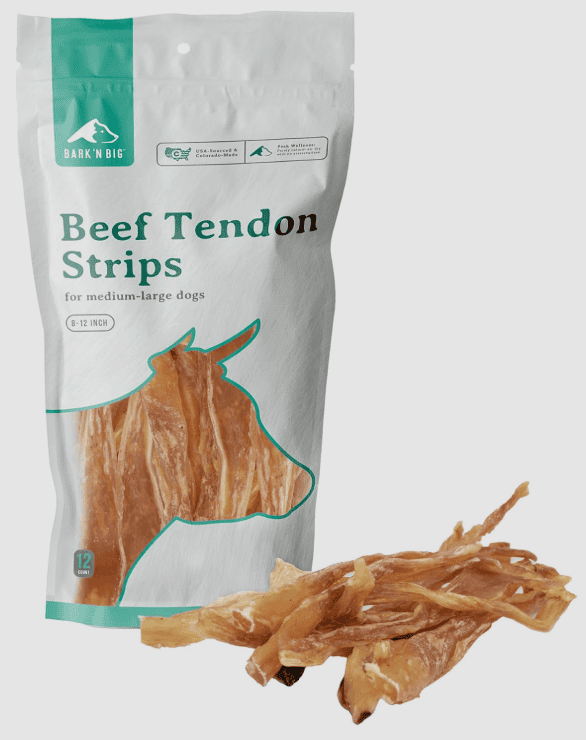
Raw Marrow Bones
Raw marrow bones are another excellent choice for maintaining your American Hairless Terrier’s dental health. They are a natural source of calcium and phosphorus, which are essential for healthy teeth and bones. Furthermore, the act of gnawing on bones can help to clean your dog’s teeth and gums.
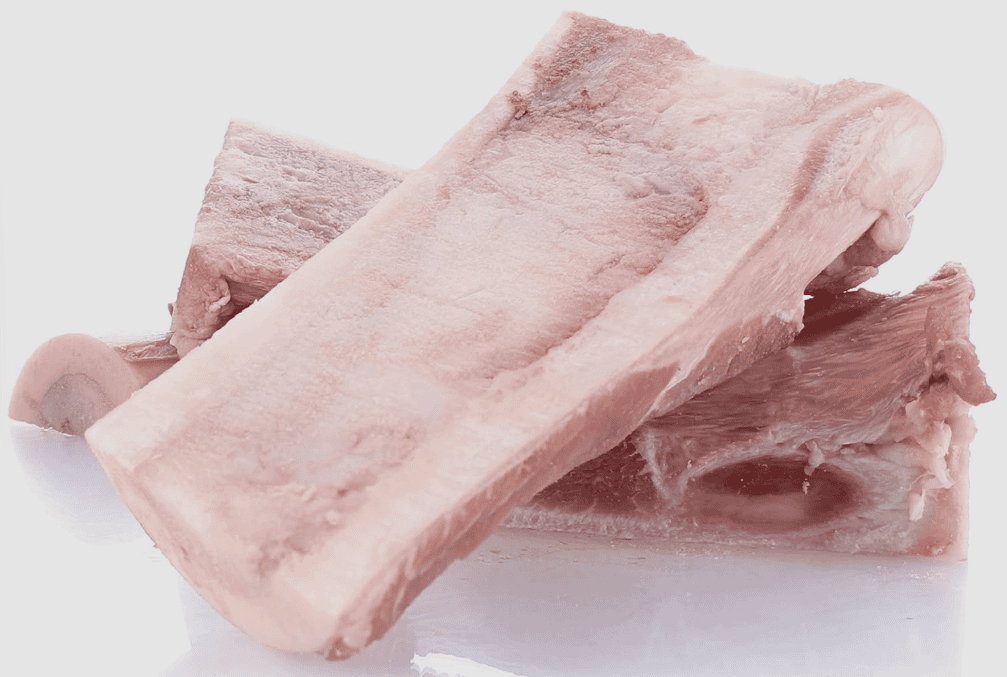
Bully Sticks
Bully sticks are made from 100% beef muscle, providing a natural and digestible chew for your American Hairless Terrier. They can effectively remove plaque and tartar and are a good source of protein. However, always supervise your dog while they’re chewing on a bully stick to prevent any choking hazard.
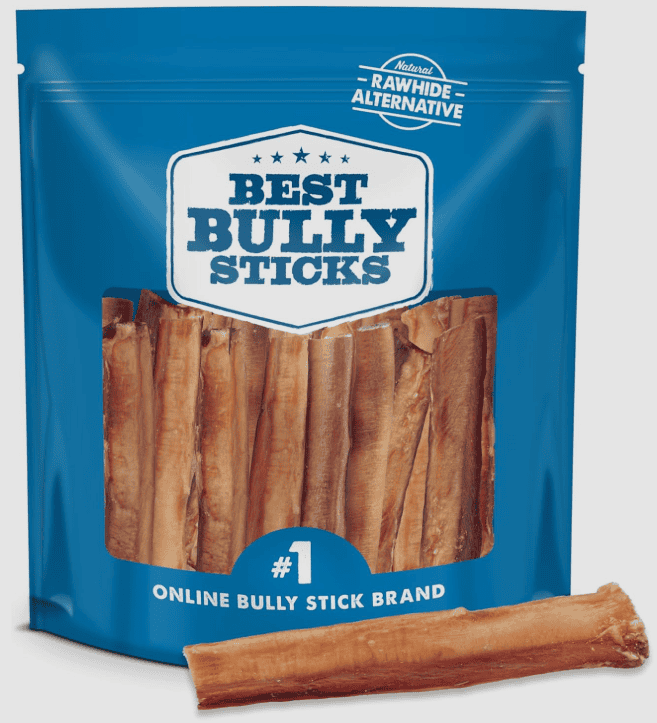
When choosing dental chews for your American Hairless Terrier, always opt for high-quality, all-natural products. Avoid anything with artificial additives or preservatives. And remember, even the best dental chews are not a substitute for regular brushing and professional dental cleanings.
Along with these chews, consider using dental hygiene products specifically designed for dogs. These include dog-friendly toothpaste and toothbrushes, as well as dental wipes that can be used to clean your dog’s teeth and gums.
Remember, your American Hairless Terrier’s dental health is crucial for their overall well-being. So, make sure you are taking the right steps in maintaining it.
Frequently Asked Questions
1. How can I prevent bad breath in my American Hairless Terrier?
Regular brushing of your American Hairless Terrier’s teeth using a dog-specific toothbrush and toothpaste is essential to maintain good dental hygiene and prevent bad breath. Additionally, providing dental chews or toys designed to promote oral health can help reduce plaque and tartar buildup.
2. What are some signs of dental problems in American Hairless Terriers?
Common signs of dental issues in American Hairless Terriers include bad breath, swollen or bleeding gums, yellow or brown teeth, difficulty chewing, pawing at the mouth, and a decrease in appetite. If you notice any of these signs, it’s important to consult a veterinarian for a dental examination.
3. Can a diet change improve my American Hairless Terrier’s dental health?
Switching to a high-quality dog food that is specifically formulated to promote dental health can be beneficial. Look for brands that have a crunchy texture or are designed to reduce tartar buildup. However, it’s important to note that a diet change alone may not be sufficient, and regular dental care is still necessary.
4. Are there any natural remedies for bad breath in American Hairless Terriers?
While natural remedies like adding parsley to your dog’s food or using coconut oil as a mouthwash may provide temporary relief, they are not a substitute for proper dental care. It’s best to focus on regular brushing, professional cleanings, and maintaining good oral hygiene practices.
5. How often should I take my American Hairless Terrier for a dental check-up?
It is recommended to take your American Hairless Terrier for a dental check-up at least once a year. However, the frequency may vary depending on your dog’s individual needs and any underlying dental issues. Your veterinarian can provide guidance on the appropriate schedule for dental examinations and cleanings.
